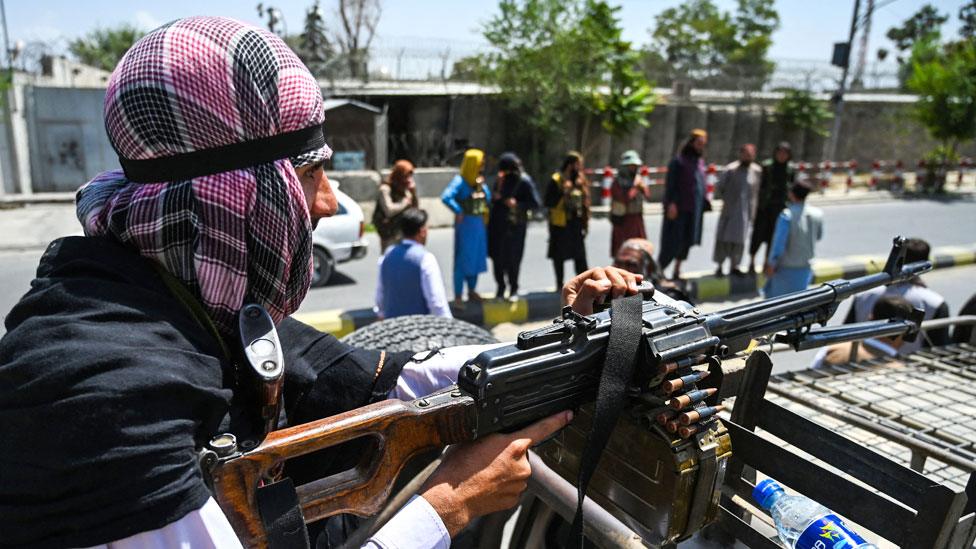Afghanistan: 'My family is stuck and there is nothing I can do'
- Published
How it happened: The Taliban advance
As Taliban forces swept into Kabul, Afghans who have settled in the UK told BBC News of their fears for loved ones back home. Names have been changed to protect the identities of those involved.
"I'm following the news every second, hoping for any good news to give me at least a calm to my heart," Ahmad told BBC News.
"But unfortunately the situation is going from bad to worse.
"The world can see what's going on but it's just leaving us.
"It has turned its back on us."
Ahmad moved to the UK as a student, in 2011.
Before leaving Afghanistan, he had been working as a translator and cultural advisor with US forces.
After completing his studies, he hoped to return.
"I was always hoping one day I could go back and do something productive for my beloved Afghanistan," he said.
"But in 2016, the Taliban had been taking some provinces.
"My dad and I were very worried and I had to put in an asylum claim."
His claim was successful - but he has been unable to help his family, as the threat of a Taliban advance grew.
"My family is stuck in Afghanistan and there is nothing I can do about it," Ahmad said.
"That is killing me inside, not only because of my family being at direct threat of the Taliban but also millions of the educated, new generation of ours that has been studying and working hard since 2001."
Ahmad feels Afghanistan has been abandoned by the international community.
"I worked with the Americans shoulder to shoulder to have a better life for my people and the next generation of us," he said.
"Now, those people are ignoring us.
"They have turned their back on us, just saving their own diplomats and their own people.
"My family don't want to go to a foreign country for a better life.
"They want to stay in Afghanistan.
"They want to have a better Afghanistan.
"They want to see a better future for the young generation.
"They want freedom.
"They want women's rights.
"They want very basic human rights.
"Now, this is impossible, based on the history and experience Afghans have had from the Taliban.
"The last time I spoke to my family... they were still hoping for a better future - and hiding.
"I'm just waiting."
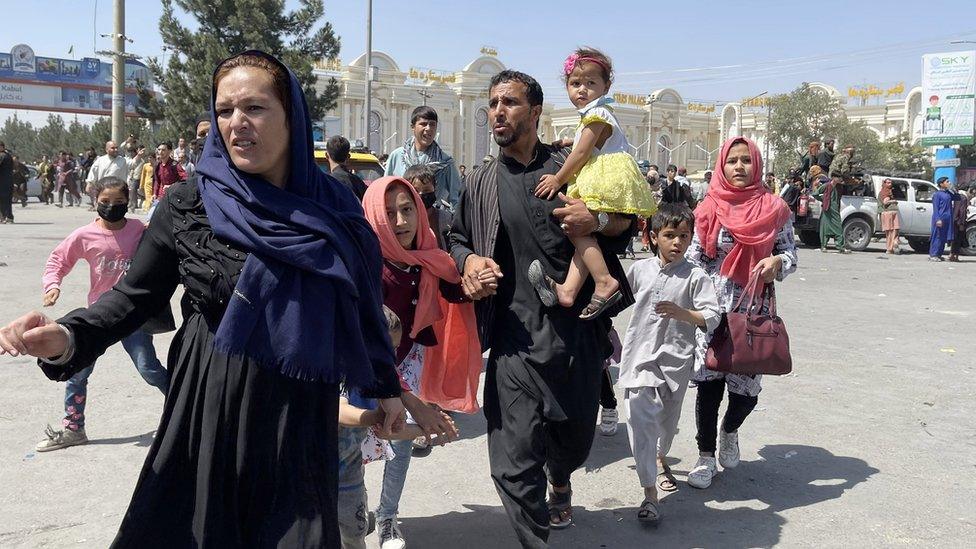
An Afghan family rushes to Kabul airport on Monday
Amina lived in Afghanistan until 2018, where she worked with women and young people.
She lost her father to Covid.
Now, she is worried about other family members.
"My brother and mother are unfortunately stuck [there]," she told BBC News.
"They are traumatised.
"My mother is also coping with the loss of my father."
Her brother had worked with US forces.
"I just spoke to him and he is very scared," she said.
"There are rumours that the Taliban are going house to house to find people who have links to the West.
"He was asking me what he should do and how he should get rid of his documents.
"I told him to burn them.
"He is worried and has nowhere to go."
2021: Chaotic scenes at Kabul airport
Abdul, from London, has lived in the UK for more than two decades, after moving from Afghanistan.
"I have not been able to sleep for a couple of weeks now," he told BBC News.
"I fear for my family's safety."
His brothers and their families live in a city seized by the Taliban on Thursday.
"One of my brothers was an adviser to the government and had previously been imprisoned in chains by the Taliban, in 1999," Abdul said.
"I really fear for him.
"I spoke to him and told him not to go home.
"He has been seen in the past with NGOs [non-governmental organisations] and Americans and is now in hiding."


Are you or your family in Afghanistan? How have you been affected? Email haveyoursay@bbc.co.uk, external.
Please include a contact number if you are willing to speak to a BBC News journalist. You can also contact BBC News in the following ways:
WhatsApp: +44 7756 165803
Tweet: @BBC_HaveYourSay, external
Please read our terms and conditions and privacy policy
If you are reading this page and cannot see the form, you will need to visit the mobile version of the BBC website to submit your question or comment, or you can email us at HaveYourSay@bbc.co.uk, external. Please include your name, age and location with any submission.
Related topics
- Published17 August 2021
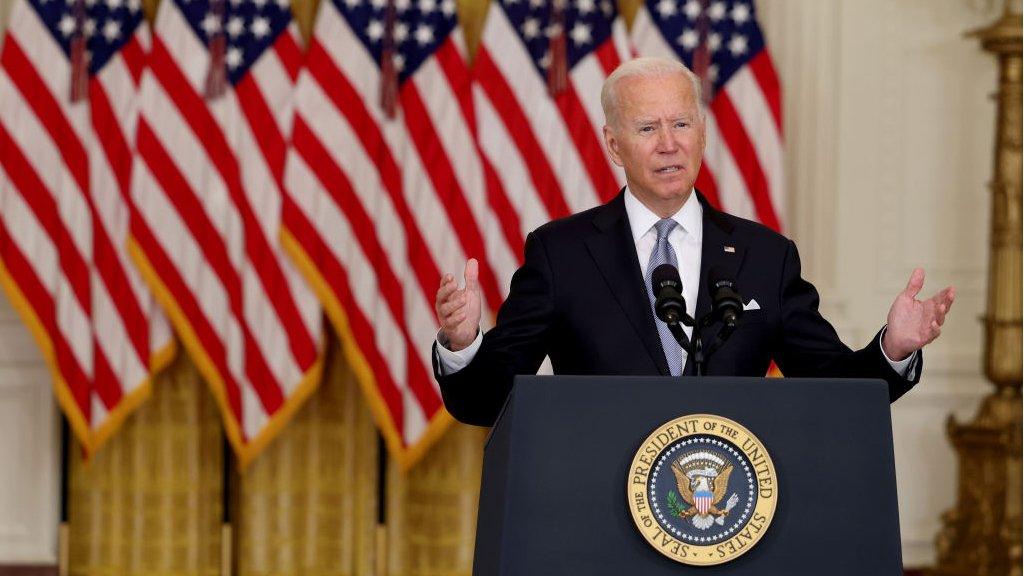
- Published16 August 2021
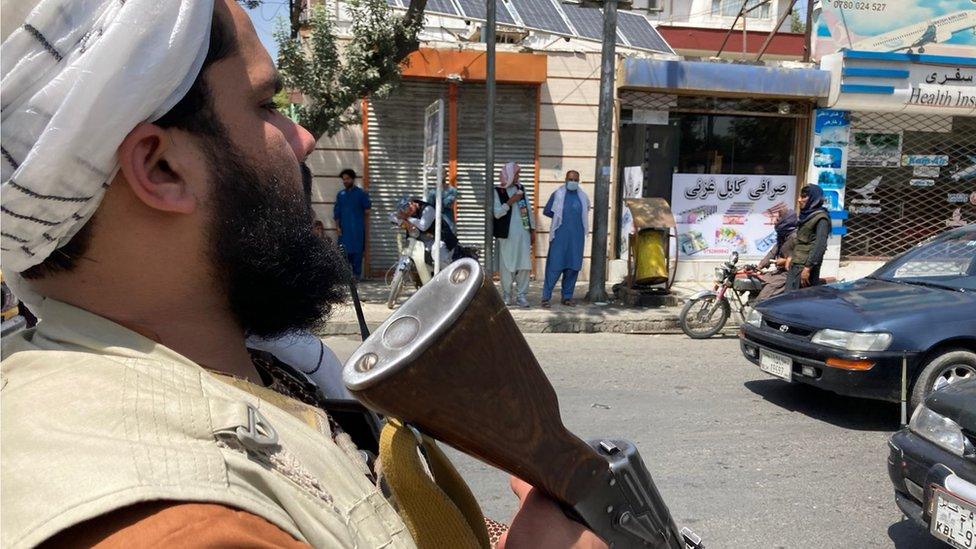
- Published16 August 2021
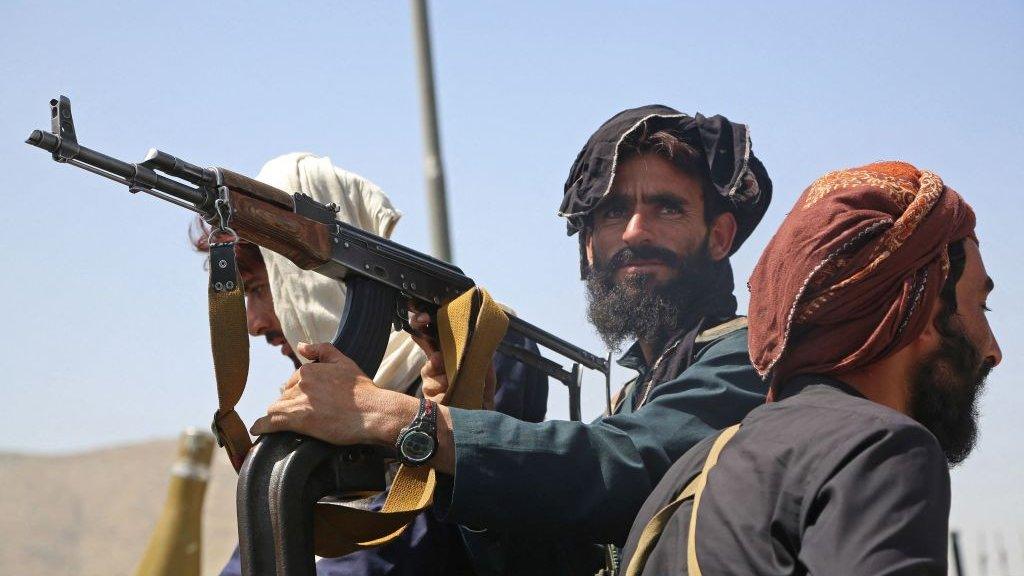
- Published15 August 2021
